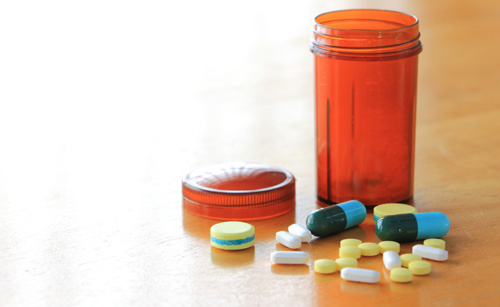 An analysis of the National Poison Data System’s data over ten years has shown that being too young to walk or crawl is no impediment to accidental poisoning. Researchers from the University Medical Center of Phoenix have observed some growing trends among what dangerous substances infants are getting into.
An analysis of the National Poison Data System’s data over ten years has shown that being too young to walk or crawl is no impediment to accidental poisoning. Researchers from the University Medical Center of Phoenix have observed some growing trends among what dangerous substances infants are getting into.
Between 2004 and 2013, there were more than 270,000 exposures involving an infant under six-months-old that prompted a call to a poison control center. This age is important since most pediatricians do not begin informing parents about poisoning prevention until the child is around six-months-old. The reason is that most health officials are worried about “exploratory ingestion”—cases where the baby wanders the environment, finds something, and puts it in their mouth. What the researchers found, however, is that mobility is not a hard and fast requirement.
Most of the exposures were from a liquid substance, typically a cream or bath soap that the infant got a hold of during a bath or diaper change. About 38% of the calls were due to “therapeutic errors”, instances where medication was dosed incorrectly or the wrong type of medicine was given or where an additional dose was accidentally administered too soon.
For the most part, the creams and soaps are not a concern from a health standpoint. Anything formulated to be used on an infant’s body is not going to cause them significant health problems. The main worry involves medications, namely acetaminophen, cough and cold syrups, ibuprofen, and similar drugs. Not only are the overdose risks for these products much greater, but the FDA advised in 2008 that cough and cold medicines shouldn’t be given in any amount to an infant under two-years-old. Similarly, ibuprofen is not recommended for children under six months.
The researchers noted that common sources of exposure to these drugs arose when an older sibling took it upon themselves to deliver a medication or when a bottle of pills was provided for the infant to use as a rattle. Dosing errors often arose when parents confused teaspoons and milliliters or lacked the appropriate dosing device (like an oral syringe or measuring spoon). Another cause of exposure was the substance being left within range of a baby’s reach.
The researchers advised that parents and caregivers be more mindful of a baby’s surroundings and possibly restrict access any older siblings may have to medicines. It is also important not to give children of any age a bottle of pills to use as a toy.
Source for Today’s Article:
“Infants Can Get into Unsecured Medicines,” Fox News web site, January 13, 2016; http://www.foxnews.com/health/2016/01/13/infants-can-get-into-unsecured-medicines.html.
